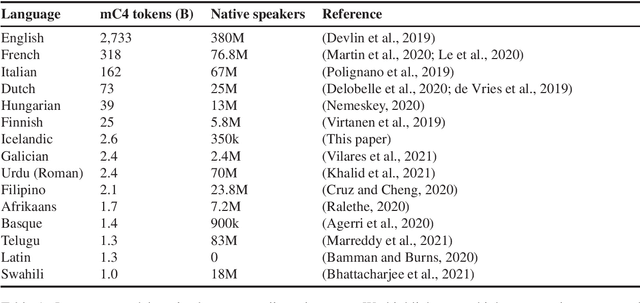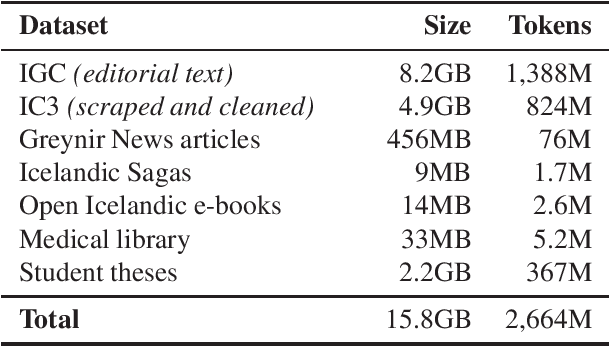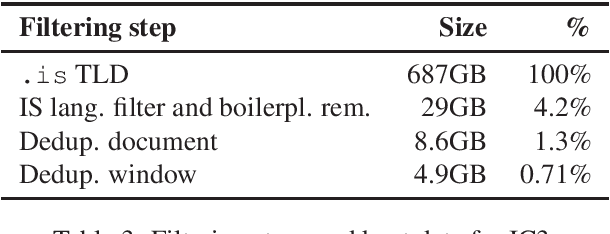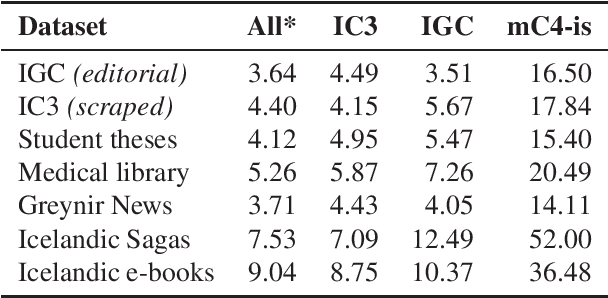A Warm Start and a Clean Crawled Corpus -- A Recipe for Good Language Models
Paper and Code
Jan 18, 2022



We train several language models for Icelandic, including IceBERT, that achieve state-of-the-art performance in a variety of downstream tasks, including part-of-speech tagging, named entity recognition, grammatical error detection and constituency parsing. To train the models we introduce a new corpus of Icelandic text, the Icelandic Common Crawl Corpus (IC3), a collection of high quality texts found online by targeting the Icelandic top-level-domain (TLD). Several other public data sources are also collected for a total of 16GB of Icelandic text. To enhance the evaluation of model performance and to raise the bar in baselines for Icelandic, we translate and adapt the WinoGrande dataset for co-reference resolution. Through these efforts we demonstrate that a properly cleaned crawled corpus is sufficient to achieve state-of-the-art results in NLP applications for low to medium resource languages, by comparison with models trained on a curated corpus. We further show that initializing models using existing multilingual models can lead to state-of-the-art results for some downstream tasks.
 Add to Chrome
Add to Chrome Add to Firefox
Add to Firefox Add to Edge
Add to Edge